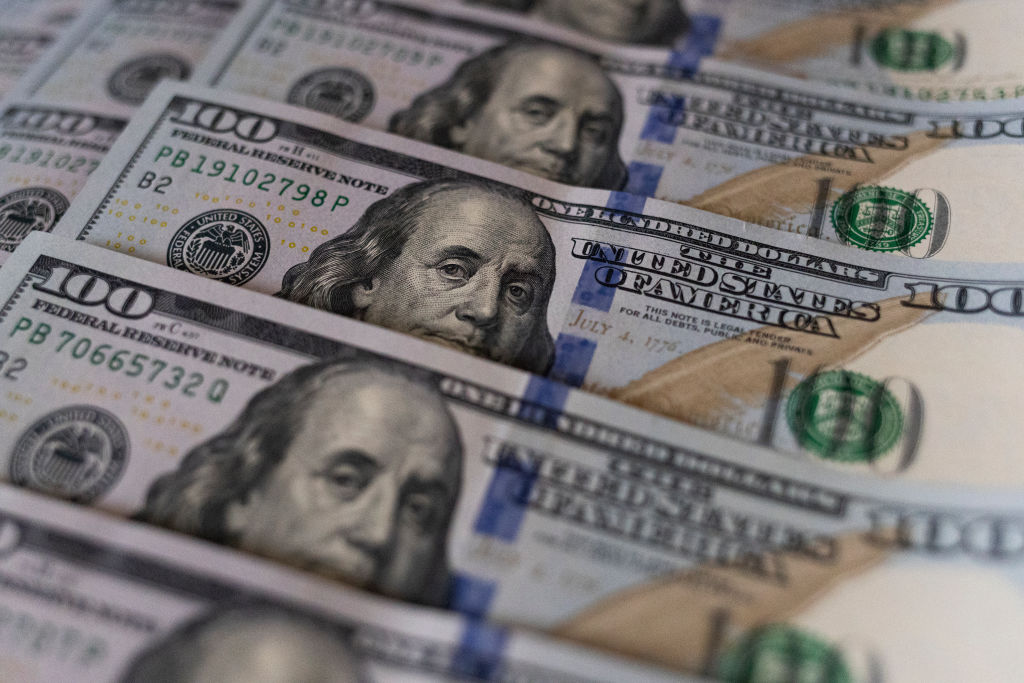The dollar touched five-month highs against the pound and euro on Tuesday, a day after hotter-than-expected U.S. retail sales sent Treasury yields higher, raising worries of an intervention from Tokyo as the yen languished at its lowest since 1990.
Data on Monday showed U.S. retail sales rose 0.7% last month, compared with a 0.3% rise that economists polled by Reuters had forecast, reinforcing expectations that the Federal Reserve will not be in a rush to cut interest rates this year.
The euro slightly rose to $1.0626, but it’s still close to its lowest point since November 2. This happened after the European Central Bank hinted at a possible interest rate cut in June last week.
Sterling slightly increased to $1.2449 from its earlier low of $1.2409, which was the lowest in five months. This happened as traders looked at data showing that although British core wage growth was the weakest since the three months to September 2022, it still remained strong compared to past trends.
That helped the U.S. dollar rise 0.04% to 106.23, having hit its highest since Nov. 2, in morning European trading.
The yen last hovered around 154.64 per dollar, its weakest level in 34 years, and close to what analysts say is the new resistance level of 155.
That kept traders on high alert for yen-buying intervention from Japanese authorities. With hedge funds building up their largest bets against the currency in 17 years, a rebound in the yen could trigger a significant rally.
In Tokyo, Japanese Finance Minister Shunichi Suzuki said on Tuesday he was closely watching currency moves and will take a “thorough response as needed”.
Though intervention, even if it comes, will not be a long term solution, say some.
“Intervention can only work today to slow or manage the pace of depreciation, but cannot turn a trend. And it’s actually very costly,” Broux said.
“The big challenge for a number of these Asian currencies, is that as long as U.S. bond yields keep grinding higher, you’re not going to get a lot of success because you’re fighting a wider yield spread.”
Other currencies in emerging Asia were also at multi-year or multi-month lows.
The Chinese yuan edged marginally lower even after GDP data for China’s first quarter beat expectations in a boost for policymakers trying to shore up confidence in the face of a protracted property crisis.
The onshore yuan fell to 7.2422 per dollar its weakest since November, before picking up after the data, and was last 7.2388 per dollar. In the offshore market, the dollar was up 0.1% at 7.2680 yuan.
The Australian dollar AUD=D3 dropped 0.45% to $0.6414, having touched its lowest since Nov. 14.
(Reuters)




















